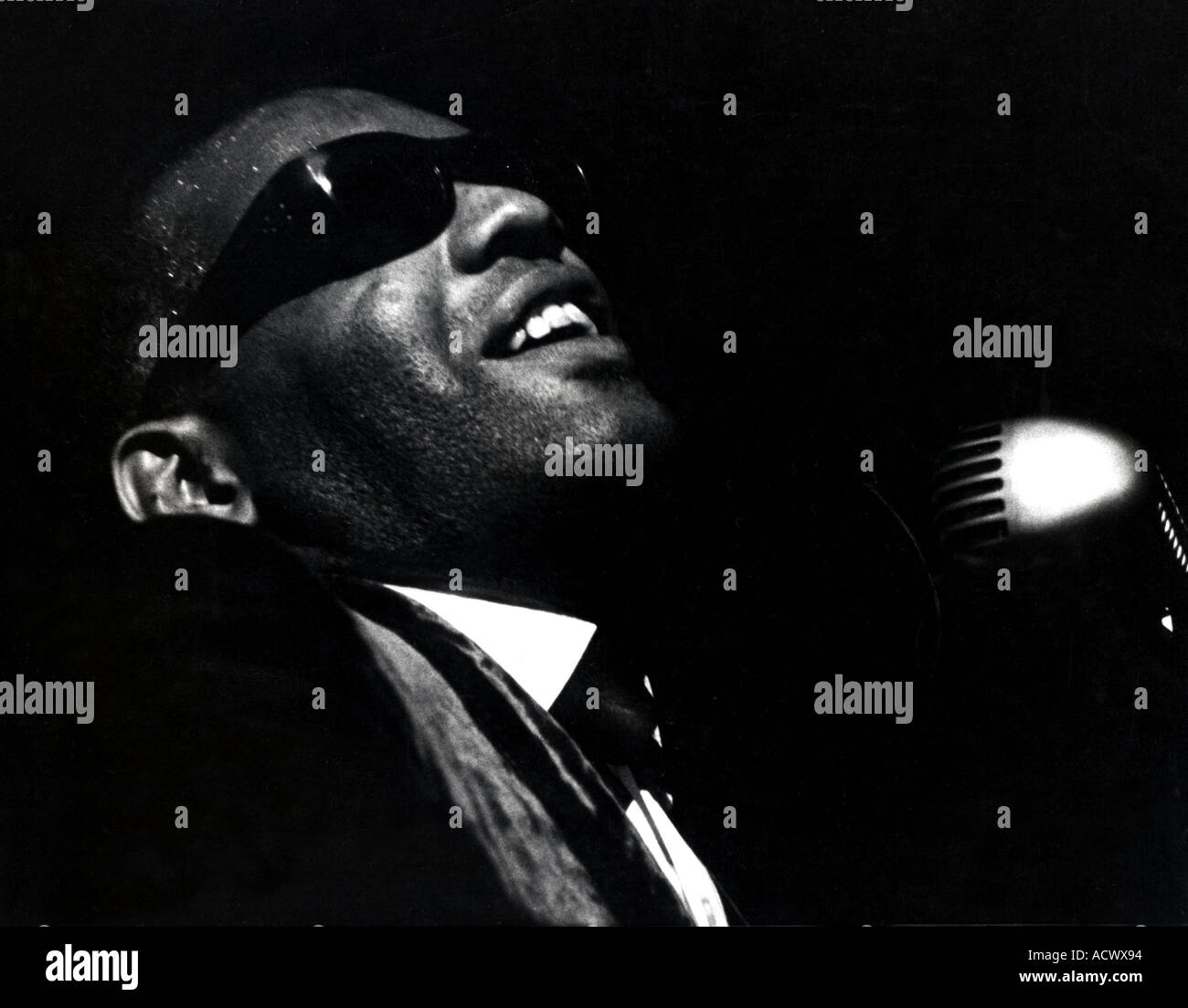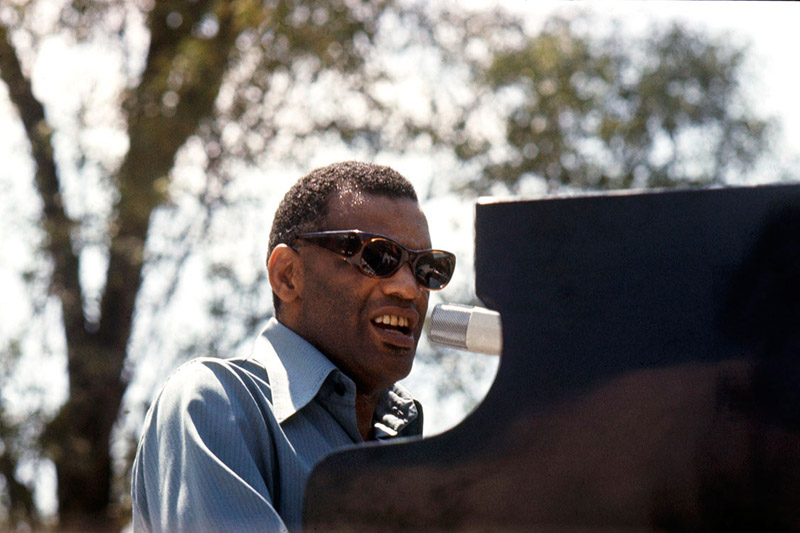There’s something magical about the way Ray Charles played the piano. It wasn’t just about the notes; it was about the emotion, the soul, and the raw power behind every single chord. If you’re here, chances are you’ve heard of Ray Charles—or maybe you’re just diving into the world of legendary pianists. Either way, buckle up because we’re about to take a deep dive into the life, music, and genius of Ray Charles, one of the most iconic figures in music history.
Ray Charles wasn’t just a pianist—he was a force of nature. His music transcended genres, blending blues, jazz, gospel, and pop into a sound that was uniquely his own. When people talk about the greatest pianists of all time, his name is always at the top of the list. But what made him so special? Was it his voice, his technique, or the way he poured his heart into every song? Let’s find out.
Before we get into the nitty-gritty, let’s set the stage. Ray Charles wasn’t just a musician; he was a trailblazer. In a time when racial segregation was still rampant, he broke barriers and paved the way for future generations of artists. His influence is still felt today, and his legacy continues to inspire musicians around the world. So, whether you’re a die-hard fan or just curious about the man behind the music, this article has got you covered.
Read also:Martin Kretz Age A Comprehensive Dive Into The Life Of An Influential Figure
Biography: The Life and Times of Ray Charles
Before we talk about Ray Charles as a pianist, let’s take a step back and explore who he was as a person. Born on September 23, 1930, in Albany, Georgia, Ray Charles Robinson grew up in a world that was far from easy. His childhood was marked by hardship, but it was also filled with music—a passion that would define his entire life.
Here’s a quick look at some key facts about Ray Charles:
| Full Name | Ray Charles Robinson |
|---|---|
| Birth Date | September 23, 1930 |
| Birthplace | Albany, Georgia, USA |
| Occupation | Singer, Pianist, Composer |
| Genre | Blues, Jazz, R&B, Soul, Gospel |
| Years Active | 1947–2004 |
Ray’s journey wasn’t easy. He lost his sight at the age of seven due to glaucoma, but instead of letting that hold him back, he embraced music as a way to express himself. By the time he was a teenager, he was already making waves in the music scene, and the rest, as they say, is history.
Ray Charles Pianist: The Early Years
When Ray Charles first picked up the piano, he had no idea that he was about to change the world of music forever. Growing up in a poor family, he didn’t have access to formal training, but that didn’t stop him. He learned by ear, absorbing everything he could from the musicians around him.
One of the things that set Ray apart from other pianists was his ability to blend different genres into something completely new. He wasn’t just playing jazz or blues; he was creating a sound that was all his own. And let’s be real, that’s what makes him such a legend in the world of music.
How Ray Charles Revolutionized Piano Playing
Now, here’s where things get interesting. Ray Charles didn’t just play the piano; he reinvented it. He brought a level of emotion and intensity to his performances that had never been seen before. His style was raw, powerful, and unapologetically authentic. People didn’t just listen to his music; they felt it deep in their souls.
Read also:Daniel Sharman Wife The Story Behind The Man And His Partner
- He combined gospel, blues, and jazz to create a unique sound.
- His use of rhythm and syncopation was groundbreaking.
- He wasn’t afraid to experiment and push boundaries.
Think about it: when you hear someone play the piano today, chances are they’ve been influenced by Ray Charles in some way. That’s how big his impact was on the music world.
Ray Charles Pianist: The Soundtrack of a Generation
If you’ve ever heard songs like “Georgia on My Mind” or “Hit the Road Jack,” you know exactly what I’m talking about. Ray Charles didn’t just write great songs; he created anthems that spoke to the hearts of millions. His music wasn’t just entertainment; it was a reflection of the times he lived in.
But what made his music so special? It wasn’t just the lyrics or the melodies—it was the way he delivered them. His voice, combined with his piano playing, created a sound that was both powerful and intimate. It’s no wonder he’s often referred to as the “Father of Soul.”
Top Hits That Defined Ray Charles’ Career
Let’s take a moment to appreciate some of Ray Charles’ most iconic songs:
- “Georgia on My Mind”
- “I Got a Woman”
- “What’d I Say”
- “Hit the Road Jack”
- “Unchain My Heart”
These songs aren’t just classics; they’re timeless. They’ve been covered by countless artists over the years, but no one can quite capture the magic that Ray brought to them.
Ray Charles Pianist: The Technique Behind the Genius
So, what exactly made Ray Charles such an incredible pianist? Was it his technique, his creativity, or something else entirely? The truth is, it was all of the above. Ray had a unique approach to playing the piano that set him apart from other musicians.
For starters, he had an incredible sense of rhythm. His use of syncopation and improvisation was second to none. He wasn’t afraid to take risks and try new things, which is why his music always felt fresh and exciting. And let’s not forget his incredible voice—it was like he was singing and playing the piano at the same time, creating a sound that was both powerful and soulful.
Lessons We Can Learn from Ray Charles’ Playing Style
Ray Charles wasn’t just a pianist; he was a teacher. His music offers valuable lessons for anyone who wants to improve their skills:
- Embrace your unique voice and style.
- Don’t be afraid to experiment and take risks.
- Let your emotions guide your playing.
These lessons aren’t just for pianists; they’re for anyone who wants to create something meaningful. Ray Charles showed us that music isn’t just about technique; it’s about telling a story and connecting with your audience.
Ray Charles Pianist: The Impact on Modern Music
It’s impossible to talk about Ray Charles without acknowledging his influence on modern music. From soul and R&B to rock and pop, his impact can be felt across countless genres. Artists like Stevie Wonder, Aretha Franklin, and Elton John have all cited Ray as a major influence on their careers.
But it’s not just about the music. Ray Charles was also a trailblazer when it came to civil rights. In a time when segregation was still the norm, he refused to perform in venues that didn’t allow Black and white audiences to sit together. He used his platform to fight for equality and justice, and his legacy continues to inspire activists today.
How Ray Charles Changed the Music Industry
Here are just a few ways Ray Charles left his mark on the music world:
- He broke down racial barriers in the music industry.
- He created a new genre by blending different styles of music.
- He proved that music could be both commercial and artistic.
These achievements might seem small today, but back then, they were revolutionary. Ray Charles showed us that music has the power to bring people together and create change.
Ray Charles Pianist: The Challenges He Faced
Of course, Ray Charles’ journey wasn’t without its challenges. He faced discrimination, addiction, and personal struggles throughout his life. But instead of letting these obstacles defeat him, he used them as fuel for his art.
His battle with drug addiction is well-documented, but it’s important to remember that he overcame it and went on to create some of the most iconic music of all time. His resilience and determination are a testament to his strength as both a musician and a human being.
Lessons from Ray Charles’ Struggles
Ray Charles’ life offers valuable lessons for anyone who’s facing their own challenges:
- Never give up on your dreams, no matter how hard things get.
- Use your struggles as inspiration for your art.
- Seek help when you need it—you don’t have to face your problems alone.
These lessons remind us that even the greatest artists face challenges, but it’s how we overcome them that defines us.
Ray Charles Pianist: The Legacy Lives On
Even after his passing in 2004, Ray Charles’ legacy continues to inspire new generations of musicians. His music is still played on the radio, covered by modern artists, and studied by aspiring pianists around the world. But his influence goes beyond just his music.
Ray Charles showed us that music has the power to transcend boundaries and bring people together. He broke down barriers and paved the way for future generations of artists. And most importantly, he reminded us that music isn’t just about notes and chords—it’s about telling a story and connecting with your audience.
How You Can Honor Ray Charles’ Legacy
So, how can you honor the legacy of Ray Charles? Here are a few ideas:
- Listen to his music and share it with others.
- Learn to play one of his songs on the piano.
- Support causes that promote equality and justice.
These small actions can help keep his memory alive and ensure that his music continues to inspire future generations.
Conclusion: Why Ray Charles Matters
To sum it all up, Ray Charles was more than just a pianist—he was a legend. His music, his legacy, and his impact on the world of music are still felt today. Whether you’re a die-hard fan or just discovering his music for the first time, there’s no denying that Ray Charles was one of the greatest musicians of all time.
So, what can you do next? Share this article with your friends, leave a comment, or check out some of Ray Charles’ music. The more we talk about his legacy, the more we can ensure that his music continues to inspire future generations.
And remember, the next time you hear someone play the piano, take a moment to think about Ray Charles and the incredible impact he had on the world of music. Because when it comes to pianists, there’s only one name that truly stands out: Ray Charles.
Table of Contents:
- Biography: The Life and Times of Ray Charles
- Ray Charles Pianist: The Early Years
- How Ray Charles Revolutionized Piano Playing
- Ray Charles Pianist: The Soundtrack of a Generation
- Ray Charles Pianist: The Technique Behind the Genius
- Lessons We Can Learn from Ray Charles’ Playing Style
- Ray Charles Pianist: The Impact on Modern Music
- Ray Charles Pianist: The Challenges He Faced
- Ray Charles Pianist: The Legacy Lives On
- How You Can Honor Ray Charles’ Legacy


